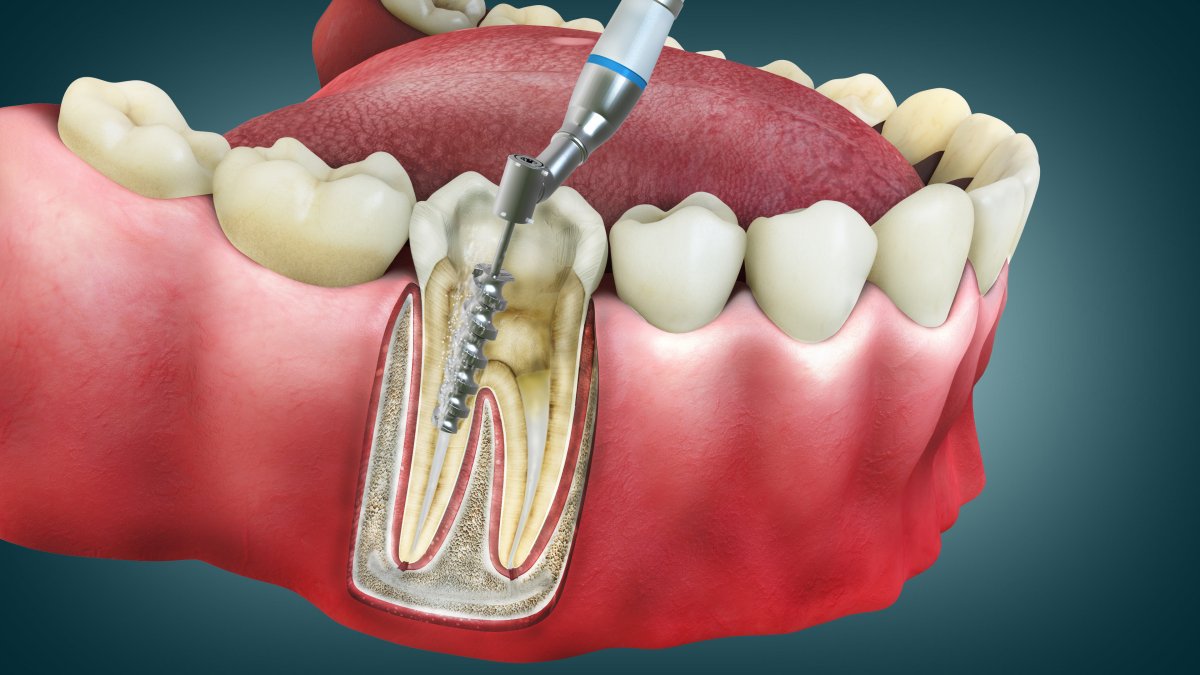Scientists are examining a new treatment for advanced tooth decay that may eliminate the need for specialist dentists to drill down and scoop out into the deepest and most sensitive parts of your teeth.
Researchers have found that molecules called resolvins regenerate tissue when applied to dental pulp, possibly saving frightened children of all ages from the terrors of the dentist's drill. They could be used deep within a tooth, allowing patients to avoid dreaded lengthy root canal treatments, according to new research in the Journal of Dental Research.
"Pulpitis (inflammation of dental pulp) is a very common oral health disease that can become a serious health condition if not treated properly," Thomas Van Dyke, the study co-author and vice president at the Center for Clinical and Translational Research at ADA Forsyth, said in a statement.

A tooth comprises several layers, with the hard enamel on the outside, dentin beneath, and deepest within, the pulp. The pulp contains all the blood vessels and nerves that keep the teeth alive. It may become inflamed by cavities, cracks to the tooth, or other injuries, with infections posing a risk of killing the pulp and causing immense pain.
Usually, root canal treatments are used when there are infections in the pulp, painstakingly removing the infected tissue and filling the gaps with a biocompatible material.
"Root canal therapy (RCT) is effective, but it does have some problems since you are removing significant portions of dentin, and the tooth dries out leading to a greater risk of fracture down the road. Our goal is to come up with a method for regenerating the pulp, instead of filling the root canal with inert material," Van Dyke said.
Resolvin E1 (RvE1) and other resolvins are naturally produced by the body, and are included in a group of molecules called Specialized Pro-resolving Mediators (SPMs). These substances are effective controllers of excess inflammation caused by infection and disease.
The study found that when RvE1 was applied to different levels of infected and damaged pulp, it was very effective at regenerating the pulp when directly applied to it, so long as the pulp was still alive. However, they found that when the RvE1 was applied to extremely infected pulp, or dead pulp, it did not cause regeneration, but did help in slowing down the infection rate and lowered inflammation.
However, this may not spell the end of dentist drills.
"A decayed tooth still has to have the decay removed and that's done with a drill. Also, to access the pulp, a drill is used," Van Dyke told Newsweek. "The finding here is all about regenerating the dental pulp, something that is not possible today. After a filling with inert materials in the root canal, the tooth dries out and becomes susceptible to fracture."
"We showed in a separate study that if the root canals are cleaned of necrotic tissue and bacteria, a similar molecule, RvD2, induces regeneration of the pulp tissue. This is in contrast to what we saw in this study when we didn't clean the root canals. This leaves open the possibility that pulp regeneration may be possible in a severely infected tooth if the root canals are cleaned."

The study was performed in mice, rather than humans, so more research will be needed to see if the RvE1 has the same effects on us, and if it's safe to use. Regardless, scientists are hopeful for the future of this treatment in dentistry and beyond.
"Application of RvE1 to dental pulp promotes formation of the type of stem cells that can differentiate into dentin (tooth), bone, cartilage or fat, this technology has huge potential for the field of regenerative medicine beyond the tissues in the teeth," Van Dyke said. "It could be used to grow bones in other parts of the body, for instance."
Do you have a tip on a science story that Newsweek should be covering? Do you have a question about dental health? Let us know via science@newsweek.com.
Uncommon Knowledge
Newsweek is committed to challenging conventional wisdom and finding connections in the search for common ground.
Newsweek is committed to challenging conventional wisdom and finding connections in the search for common ground.
About the writer
Jess Thomson is a Newsweek Science Reporter based in London UK. Her focus is reporting on science, technology and healthcare. ... Read more





